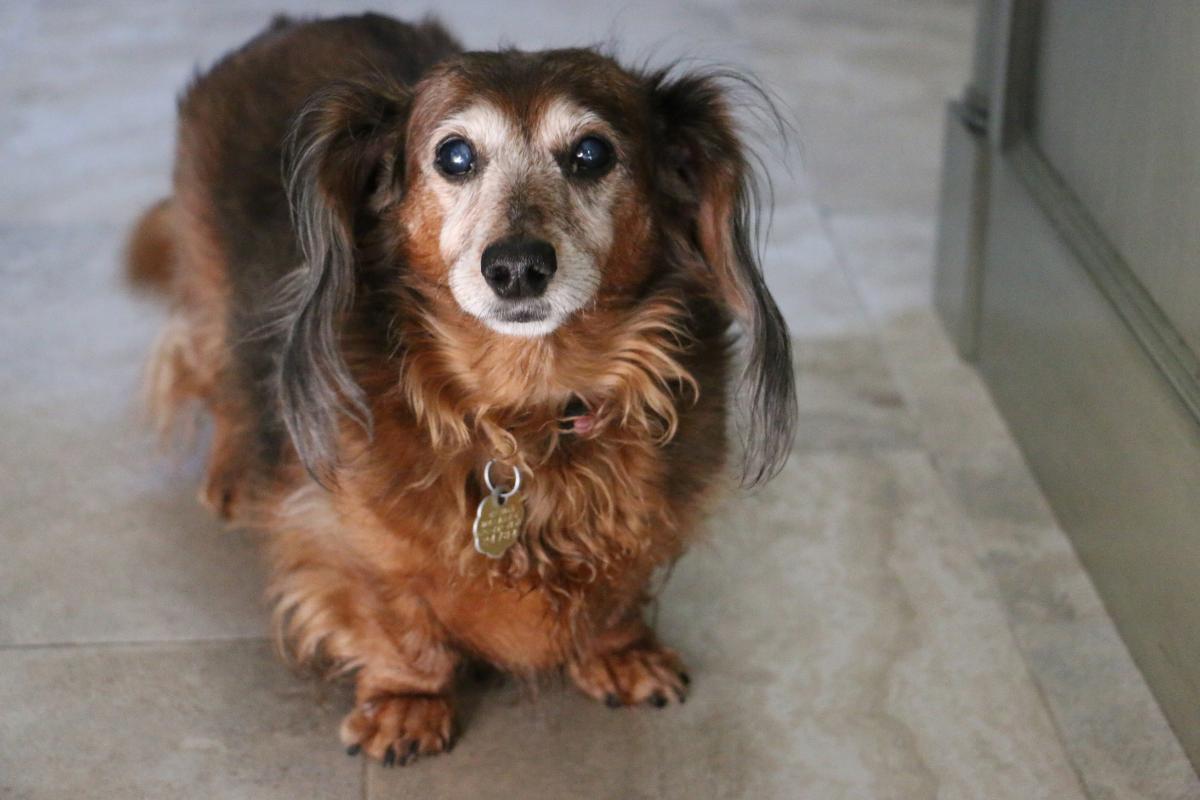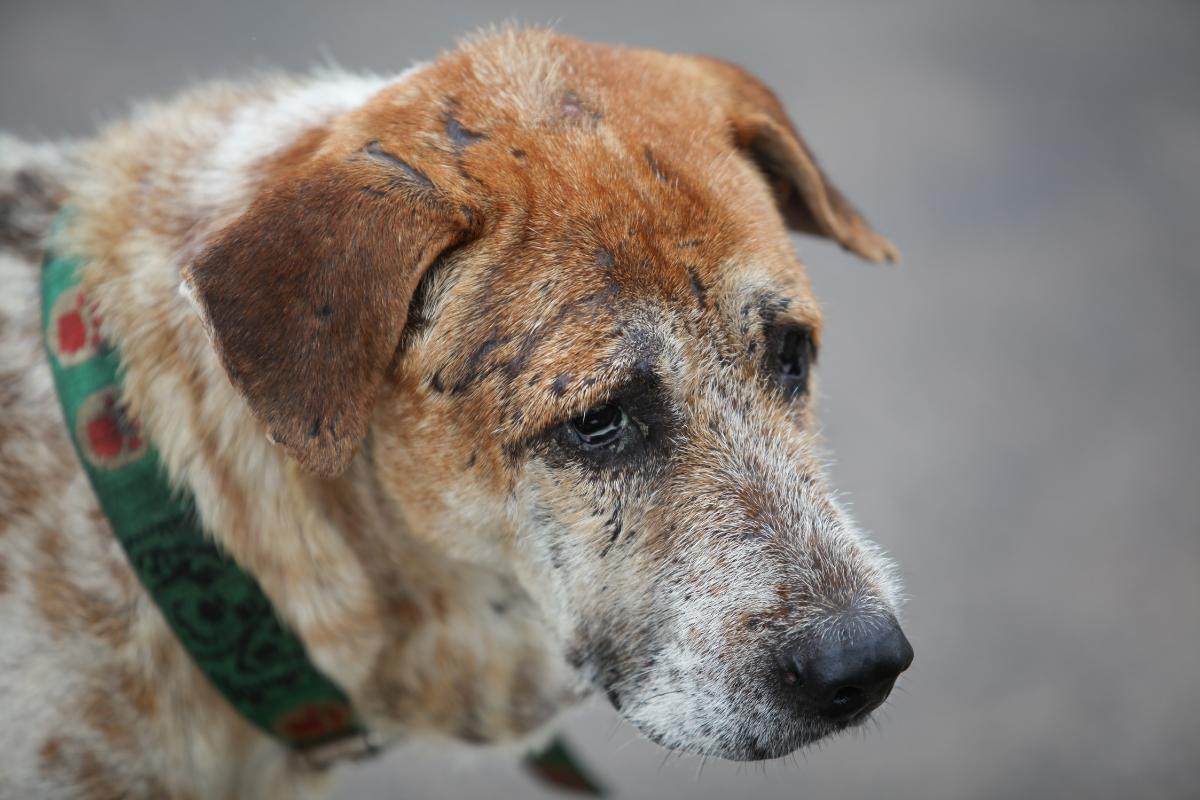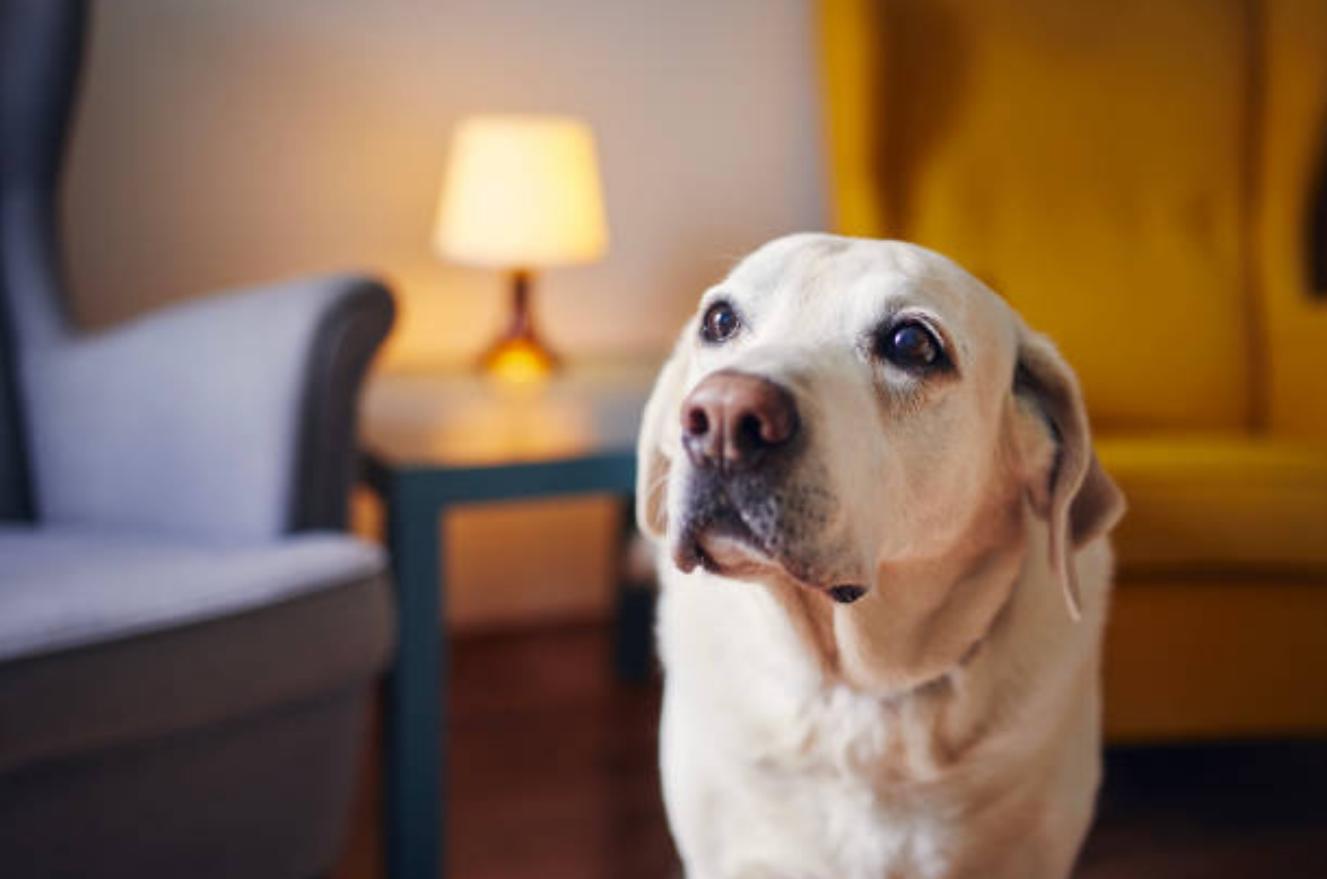My Senior Dog Is Pacing and Won't Lie Down



See files for Dogs
An elderly dog walking restlessly around the home can be one of the many changes in behavior due to the advancement of age. While it is good for a guardian to have concern, it doesn't mean the dog is in immediate danger. It does mean we need to be considerate of any problems and help the dog adjust to their senior status. The worst we can do is to ignore such behavioral changes and treat them the same as a younger dog. Doing so can intensify any mobility or behavioral problems which accompany the aging process in dogs.
At AnimalWised, we discover why my dog is pacing and won't lie down. Once we know the causes of this behavior, we can be in a better position to know what to do about it.
Anxiety or agitation
Anxiety or agitation may cause an older dog to pace around the home constantly. They may do so to manage their feelings or as a coping mechanism. What it is they are coping with will depend on the individual. For many, the changes in their body due to age can be confusing and worrying. Other dogs may be stressed for reasons to do with changes in their environment or anything that might be inducing anxiety.
Pacing around the home for prolonged periods can help the dog to manage their feelings of stress. However, it is important that we intervene and provide comfort and reassurance. We should do what we can to determine the cause of stress. This might require the help of a canine ethologist. Treatment will be based on addressing this underlying cause, making positive environmental changes and generally providing reassurance.
Insomnia
Insomnia is common among older dogs. It can result in sleep disturbances or frequent waking during the night. As a result, they may try to relieve insomnia by pacing around the home at night. If you notice that your dog tends to be agitated at night, you should try to consult your veterinarian to determine the problem. You can discover more background about this problem with our guide to why an older dog won't sleep at night.

Restless leg syndrome (RLS)
Restless legs syndrome is a condition that occurs in humans, but it can also occur in dogs. It manifests itself with unpleasant sensations in the paws. They may experience a tingling or agitation which induces the dog to continue moving their leg. This is to relieve any discomfort. It is common in elderly dogs that already suffer from problems related to bones or joints, especially if they are obese.
This behavior usually occurs at night or while the dog is resting. Since it is likely related to a joint problem, the dog may have a dislocated hip, ataxia or some other serious condition. Taking them to a veterinarian can help provide a better quality of life.
Pain and discomfort
Another reason your older dog is pacing and won't lie down is because it is too painful to do so. With age comes deterioration of the body, something which can result in wearing down of joints, breathing issues, gastrointestinal problems and even general lethargy. When lying down, the weight of the body can put pressure on problem areas and may resting uncomfortable. When acute, the dog cannot stand up easily or walk properly.
Degenerative arthritis is one of the most common ailments in senior dogs. It is not curable, but the symptoms can be managed with pain relievers, diet and lifestyles changes. You will need to speak to your veterinarian to determine the best course of action for your dog.
Disorientation and cognitive impairment
As they age, some dogs may develop cognitive problems similar to dementia in humans. This cognitive impairment can cause confusion and disorientation. It can lead the senior dog to pace around the home without laying down. It is similarly to humans with dementia walking into a room and forgetting why they did so. It can cause serious confusion and stress.
Learn more about the nature of neurological problems in older dogs with our related article.
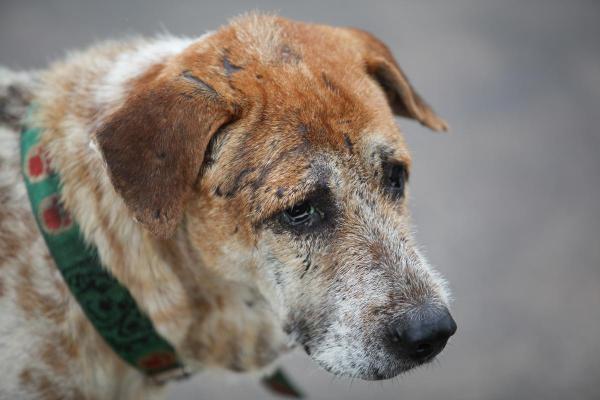
Sensory problems
As dogs age, their vision and hearing can deteriorate. Loss of sensory acuity can cause them to feel unsafe in their surroundings, prompting them to pace incessantly to seek familiarity or compensate for a lack of sensory stimulation.
They generally show other signs of this loss of one or more senses. For example, if the senior dog has lost vision, they may bump into objects or walls. If they have lost their hearing, they may not respond to your call.
Lack of physical exercise
If an older dog doesn't get enough exercise during the day, they may be overly energetic or restless at night. Pacing and not lying down can be a way to release pent up energy. Even if they are older, it is important to play with your dog and provide enough opportunity to get the right level of exercise they require.
Both games at home and outdoor activities should be adapted to their age and physical condition. If your elderly dog is not able to run, do not try to throw the ball to them. Instead, take walks that allow them to exercise without getting hurt. Your veterinarian can advise you and tell you the best exercises for your dog, since swimming or walking on the beach may be beneficial for him.
Learn more with our article on physical therapy for dogs with arthritis.
Changes in the sleep-wake cycle
Some older dogs may develop changes in their sleep-wake cycle, causing them to stay awake at night and walk aimlessly. They will also likely sleep more during the day. This is completely normal due to age, so do not punish or scold them for this behavior.
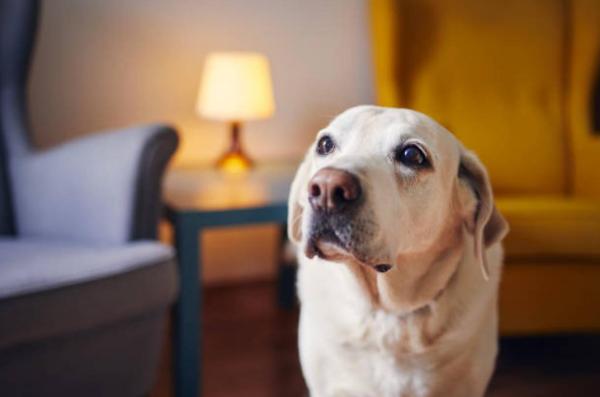
What to do if my elderly dog walks around the house a lot
You now know the common causes of a dog pacing and not lying down. There are various treatments for these specific causes, but there are some important things to consider when caring for an older dog. They include the following:
- Consult a veterinarian: the first and most important action to take is to take your elderly dog to an experienced veterinarian. Only a professional can examine your dog, identify any medical causes and provide an accurate diagnosis. A veterinarian can also rule out hidden pain or related conditions and prescribe appropriate treatments.
- Treat underlying conditions: if your veterinarian identifies a specific cause of the behavior, such as restless legs syndrome or insomnia, follow the prescribed treatment to control or relieve symptoms.
- Provide a safe and comfortable environment: ensure the environment your dog lives in is safe and comfortable. Removing obstacles, making resting places accessible and placing non-slip mats can help your senior dog feel more secure and stable while on the move.
- Provide a stimulating environment: for older dogs suffering from sensory issues or cognitive decline, a stimulating environment can help reduce agitation and anxiety. Interactive toys, dog puzzles and activities that engage them cognitively to help keep their mind active and engaged. Learn more about environmental enrichment for dogs with our related article.
- Practice adequate physical activity: too many think that older dogs should stop exercising, but this can seriously harm their quality of life. Providing your dog with adequate physical activity during the day can help reduce excess energy and restlessness during the evening. It is advisable to avoid excessively intense or prolonged exercise, so adatp to their needs to reduce the risk of injury or fatigue.
- Administer supplements and medications: if your veterinarian identifies joint pain or other physical ailments, he or she may prescribe medications or supplements to relieve pain and improve your senior dog's mobility. Follow their recommendations and never self-medicate your dog.
- Consider behavioral therapy: if constant walking is caused by anxiety or stress, behavioral therapy may be helpful. A dog trainer or behaviorist can help identify the causes of anxiety and develop coping strategies.
- Ensure quality nutrition: a proper diet for older dogs can contribute to their overall well-being. Ask your veterinarian which diet best suits your dog's specific needs.
- Ensure adequate rest: make sure your senior dog has a quiet, comfortable place to rest during the day and night. Getting enough rest can help reduce excessive nighttime activity.
- Monitor behavior: keeping a diary of your dog's behavior can be helpful in detecting patterns or changes over time. You can share this information with the veterinarian for a more complete evaluation of their health status.
- Avoid sudden changes: older dogs may be sensitive to changes in environment or routine. Try to maintain a consistent and predictable routine to reduce your dog's stress levels.
- Provide love and be patient: older dogs may need more affection and support. Showing love, patience and kindness can help improve your emotional and behavioral well-being. Despite these actions, your elderly dog may still be pacing and not lying down. In many cases this is completely normal behavior in this final stage of their life.
In conclusion, if your elderly dog does not stop pacing around the home, it may be due to several causes, including medical problems, anxiety, cognitive decline or simply lack of adequate physical activity during the day. It is essential to consult a veterinarian to obtain an accurate diagnosis. Follow their advice to improve the health and wellbeing of your dog.
If improvement in quality of life is not possible, the sad reality is that it may be time to consider palliative care. This is a devastating time for any animal guardian.

If you want to read similar articles to My Senior Dog Is Pacing and Won't Lie Down, we recommend you visit our Geriatrics category.





